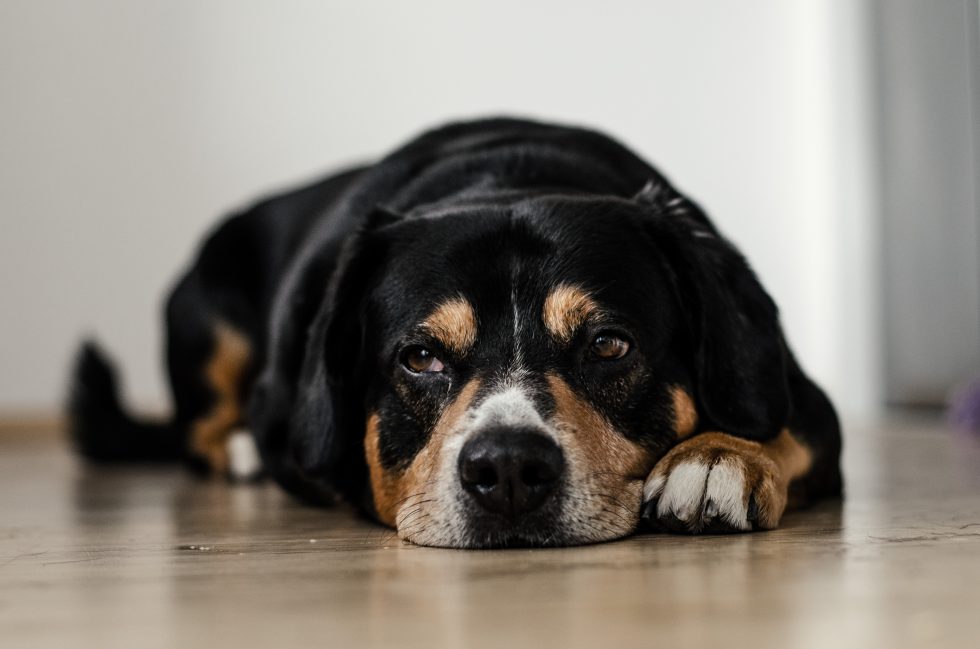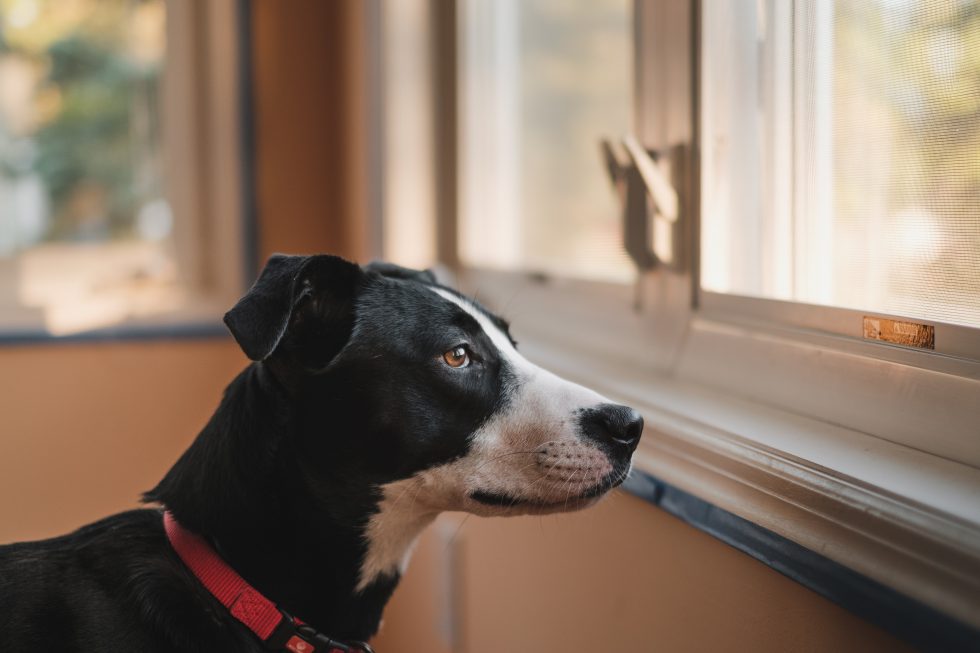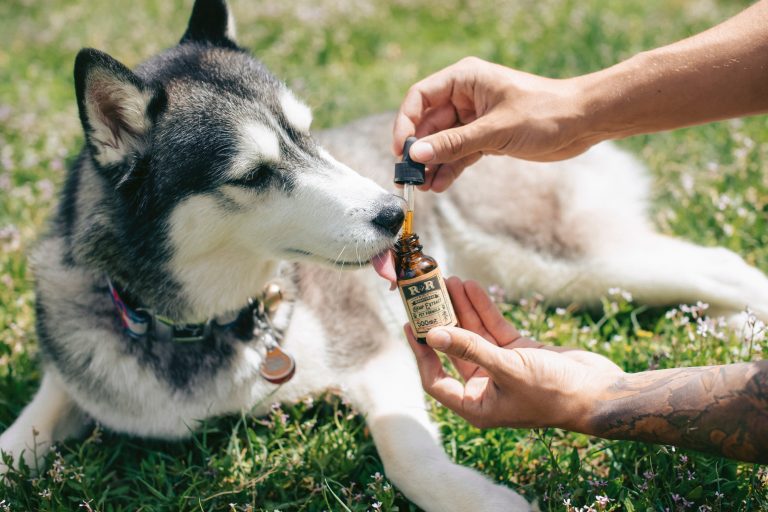
Humans aren’t the only ones who can suffer from anxiety. Pets can be affected by anxiety as well. While many pets, and especially dogs, are often able to offer comfort and emotional support to humans who suffer from anxiety, do you know what to do to help your dog when your furry friend is suffering from anxiety?
Types of Anxiety Common to Dogs
There are four main types of anxiety that are common to dogs. They include separation anxiety, anxiety due to past trauma, anxiety due to illness or injury, and general anxiety.
Separation Anxiety

If your dog barks or cries when you leave the house, or you find yourself coming home to a mess of destruction, it’s likely your pet suffers from separation anxiety. Since they are social creatures by nature, this is a very common anxiety for domestic dogs. Indicators of separation anxiety include:
- Excessive whining, howling or barking when left alone
- Destruction of furniture or other household items
- Urinating and defecating inside the house when otherwise completely potty-trained
Being left alone can cause dogs to feel lonely, depressed, and bored. However, some dogs handle being left alone better than others. If your dog suffers from severe separation anxiety, there are several things you can try to bring them relief when you leave home:
- Take your dog on a long walk or take them to the park to run and play before you have to leave. If your dog is tired from exercise, they will be more likely to sleep while you’re away and have no time to be anxious.
- If boredom is the main cause of your pup’s separation anxiety, try giving them something that will keep them engaged while you’re away. Treats that can be filled with peanut butter or other treats and then frozen are a great option. They’ll keep your pet too busy to be bored.
- Another option is to leave an audiobook playing for your dog while you’re out. The sound of human voices has been shown to be soothing to dogs and it can help ease their anxiety until you return.
- Making a big deal out saying goodbye to your pet every time you leave the house can actually make separation anxiety worse. Try a sneakier approach to leaving the house and see if it helps your dog remain calmer in your absence.
Anxiety Due to Past Trauma

Common to dogs left at shelters, this type of anxiety can manifest into separation anxiety or general anxiety, or it can result in anxious behavior related to a specific type of event related to the previous trauma. Having an area of the home that they feel especially safe, like a crate or a bed can be helpful to dogs with this type of anxiety. It may also help if you’re able to create a reliable routine where your dog knows what to expect throughout the day. If the symptoms are especially bad and show no signs of improvement, this type of anxiety can often improve with the help of an animal behaviorist or trainer who can help to determine underlying triggers and develop solutions to ease the anxiety.
Anxiety Due to Illness or Injury

If your normally relaxed and easy-going pup is suddenly acting nervous and anxious, that can be a warning sign of illness or injury. In fact, any sudden and extreme change in behavior should signal to you that there’s something going on with your dog. If you are unable to determine an environmental cause, you should contact your vet for an appointment right away. Sudden on-set anxiety can be an indicator of serious underlying illnesses such as Graves’ disease, hypothyroidism, diabetes, encephalitis, or problems with vision or hearing.
As dogs age, they may also become more anxious due to declines in cognitive functions and physical abilities. This is known as old-age-onset anxiety, and your vet may have recommendations to help ease your dog’s discomfort, depending on your pooch’s specific needs.
General Anxiety

As with people, some dogs are simply more prone to anxiety than others. General anxiety can be difficult to diagnose in dogs because the symptoms can sometimes seem like normal personality quirks in an individual dog. Certain breeds can be more susceptible to general anxiety, including many toy breeds such as Chihuahuas, dachshunds, miniature dachshunds, toy poodles, and Yorkshire Terriers, among others.
Dogs with general anxiety can benefit from a lot of the same treatments used for other types of anxiety. Consider trying new treatments one-at-a-time for a short time until you find the right combination that works to calm your dog’s anxieties.
Medication for Anxiety

If your dog’s anxiety cannot be managed through behavioral and environmental changes, your vet may recommend medication to treat the anxiety. Certain antidepressants, when paired with the behavior modification techniques described above, have been shown to help reduce symptoms of anxiety in various breeds of dogs. These medications have also been demonstrated to be helpful in reducing symptoms of separation anxiety, in addition to general anxiety. Some combination of medication and behavioral or environmental changes may be the right solution to reducing your pup’s anxieties permanently.
While some dogs may be more naturally anxious than others, there’s no need for your dog to suffer from serious bouts of anxiety, regardless of the cause. Talk to your dog’s vet about the best options for treating anxiety specific to your pet, and both of you will be much happier.


